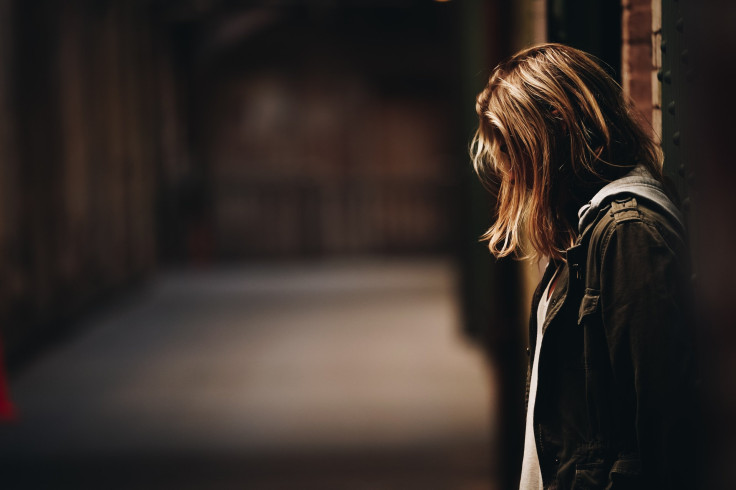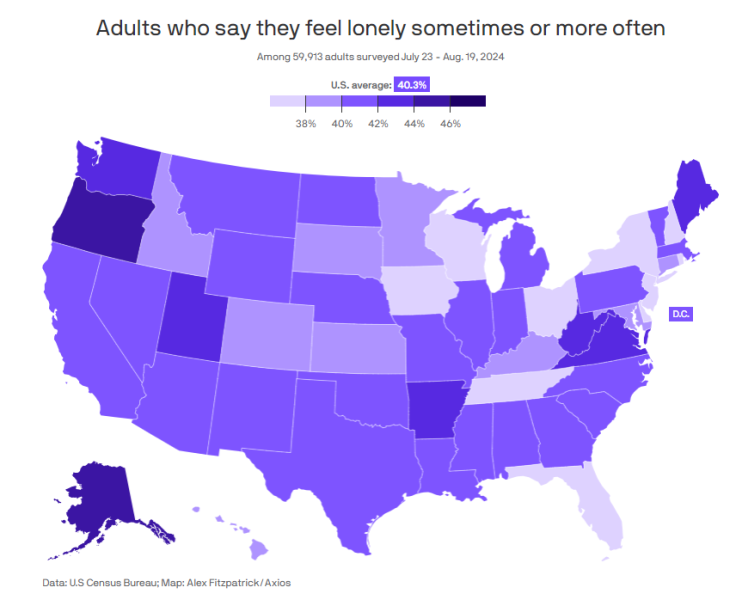
ALABAMA - Despite being a few years out of the COVID-19 pandemic that impacted the mental health of millions of Americans, a recent survey found that nearly one in every two adults is experiencing some sort of loneliness. The current economic landscape, increase in everyday expenses, difficulty making ends meet as well as weather and living arrangements are all potential factors that is impacting the mental health of the adult population.
Earlier this year, surveys by different organizations found the best spots for American's to retire as well as the rudest places to live in the United States. And this time around, The Latin Times is focusing in one study from the U.S. Census Bureau that analyzes the latest "vibe check" across the country.
According to the newest Household Pulse Survey (HPS), 40.3% of American adults said they experienced feelings of loneliness at least sometimes. The HPS project is designed to quickly assess Americans' economic and financial wellbeing, among other topics. In its latest analysis, 60,000 people were surveyed between July 23 and August 19, giving us some interesting findings in the wellbeing of the American population.
States known for their natural beauty such as Alaska, Oregon and Virginia are reporting the highest percentage of adult experiencing loneliness, contrary to what another recent survey found in Wyoming, labelling it as the "most optimistic state" in the U.S.
Alaska leads the nation with a 45.9% rate of adults experiencing loneliness, while Oregon (44.7%) and Virginia (43.3%) complete the top three.

According to U.S. Surgeon General Vivek Murthy, the impact of social isolation on mortality is similar to that caused by smoking up to 15 cigarettes a day. In an advisory released in May of last year, Murthy argues that loneliness can increase the risk of heart disease, dementia, stroke and premature death.
"It was only when I started traveling the country as surgeon general back in 2014 when I was confirmed for my first stint [during the Obama administration] that I really came to understand how pervasive loneliness was," Murthy told Axios.
According to Murthy's notes in the advisory, social isolation can be quite costly for the U.S. government. Social isolation among older adults account for $6.7 billion in excess Medicare spending annually, largely due to increased hospital and nursing facility spending.
"People were often quite ashamed to talk about it, and they wouldn't use the word lonely to describe how they were feeling. They would use words like 'invisible.'" - U.S. Surgeon General Vivek Murthy
Living arrangements can have an impact on an individual's mental health
According to a 2021 National Health Interview Survey, living alone is linked to higher rates of self-reported depression than living with others.
The survey found that 16% of U.S. adults lived alone in 2021, and 6.4% of them reported depression, compared to just 4.1% of those who live with others.
Other findings saw that adults who say they live alone and rarely or never receive emotional or social support were almost twice as likely to say they have feelings of depression.
Psychologist and "Stress Resets" author Jenny Taitz argues that living alone is not bad for an individual's mental health, "but there's something about living with another person that can create a little bit of a push to do habits that can improve your mood."
According to Centers for Disease Control and Prevention data, the share of single-person households in the U.S. keeps increasing. In 1962, only 13.6% of Americans lived alone, but fast-forward to 2022, that number is now at almost 30% (28.9%).
© 2025 Latin Times. All rights reserved. Do not reproduce without permission.







